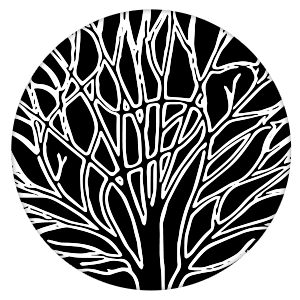Modeling the Dynamics of Cultural Diversification
Introduction
The introduction discusses biological macroevolution and how it motivates cultural macroevolution; highlights questions approachable from a cultural macroevolutionary perspective; introduces macroevolutionary methods that will be applied in future modules; and lays out the structure of these tutorials.
For those of you new to cultural evolution, please watch the brief video tutorial introduction to cultural macroevolution presented by Dr. Erik Gjesfjeld, below:
Google Colaboratory Environment. These tutorials are built in the Google Colaboratory Environment. To access these tutorials, you must be logged in to a Google account with Google Colaboratory (Colab) installed. Colab is a free resource linked to Google accounts that runs Python notebooks on the cloud and attaches to your Google Drive. If you do not have Colab installed, it can be found here: https://gsuite.google.com/marketplace/app/colaboratory/1014160490159. When you open a Colab notebook, Google creates a virtual machine for you with Python and the most relevant scientific packages preinstalled. Because it is a complete virtual machine, you can also install your own Python packages, download software from Github, link files from your Google Drive, run command line programs, and use a GPU/TPU. We make use of some of these features throughout the tutorials. If you are new to Colab, an introduction, overview, and list of resources are available here: Welcome to Colaboratory.
How to start this tutorial
- Sign in to your Google account.
- Install the Drive-addon 'colaboratory' on your Google Drive.
-
 Download Introductory Tutorial to your Colab-connected Google Drive.
Download Introductory Tutorial to your Colab-connected Google Drive. - Choose 'Colaboratory' from the 'Open with' menu at the top of your Google Drive window.
Citing the theory and methods
If you enjoyed these tutorials and end up using these methods, please cite both of the following papers:
Gjesfjeld, Erik, Daniele Silvestro, Jonathan Chang, Bernard Koch, Jacob G. Foster, and Michael E. Alfaro. "A Quantitative Workflow for Modeling Diversification in Material Culture". PLOS ONE 15, no. 2 (6 February 2020): e0227579. https://doi.org/10.1371/journal.pone.0227579.
Koch, Bernard, Daniele Silvestro, and Jacob G. Foster. n.d. "The Evolutionary Dynamics of Cultural Change (as Told Through the Birth and Brutal, Blackened Death of Metal Music)." SocArXiv. osf.io/preprints/socarxiv/659bt.
References
Boyd, R., M. Borgerhoff-Mulder, W. Durham, and P. Richerson. Are Cultural Phylogenies Possible? In Human by Nature, Between Biology and the Social Sciences, edited by P. Weingart, P. Richerson, S.D. Mithcell, and S. Maasen, 355–86. Mahwah, NJ: Lawrence Erlbaum Assoicates, 1997. [Link]
Foster, Jacob G. Culture and Computation: Steps to a Probably Approximately Correct Theory of Culture. Poetics 68 (1 June 2018): 144–54. [Link]
Gjesfjeld, Erik, Daniele Silvestro, Jonathan Chang, Bernard Koch, Jacob G. Foster, and Michael E. Alfaro. A Quantitative Workflow for Modeling Diversification in Material Culture. PLOS ONE 15, no. 2 (6 February 2020): e0227579. [Link]
Gray, Russell D., Alexei J. Drummond, and Simon J. Greenhill. Language Phylogenies Reveal Expansion Pulses and Pauses in Pacific Settlement. Science 323, no. 5913 (2009): 479–483. [Link]
Koch, Bernard, Daniele Silvestro, and Jacob G. Foster. n.d. The Evolutionary Dynamics of Cultural Change (as Told Through the Birth and Brutal, Blackened Death of Metal Music). SocArXiv. osf.io/preprints/socarxiv/659bt. [Link]
Mesoudi, Alex. Pursuing Darwin's Curious Parallel: Prospects for a Science of Cultural Evolution. Proceedings of the National Academy of Sciences 114, no. 30 (2017): 7853–7860. [Link]
Mesoudi, Alex, Andrew Whiten, and Kevin N. Laland. Towards a Unified Science of Cultural Evolution. Behavioral and Brain Sciences 29, no. 4 (August 2006): 329–47. [Link]
Raup, David M., Stephen Jay Gould, Thomas J. M. Schopf, and Daniel S. Simberloff. Stochastic Models of Phylogeny and the Evolution of Diversity. The Journal of Geology 81, no. 5 (1 September 1973): 525–42. [Link]
Silvestro, Daniele, Nicolas Salamin, Alexandre Antonelli, and Xavier Meyer. Improved Estimation of Macroevolutionary Rates from Fossil Data Using a Bayesian Framework. Paleobiology 45, no. 4 (2019): 546–70. [Link]
Sperber, Dan. Explaining Culture: A Naturalistic Approach. Oxford: Blackwell, 1996.
This project was supported by Grant #61105 from the John Templeton Foundation to the University of Tennessee, Knoxville (PIs: S. Gavrilets and P. J. Richerson) with assistance from the Center for the Dynamics of Social Complexity and the National Institute for Mathematical and Biological Synthesis at the University of Tennessee, Knoxville.

The Cultural Evolution Society's Online Learning Tutorial Series is licensed under a Creative Commons Attribution-NonCommercial-ShareAlike 4.0 International License. For designers' contact information, click here.



